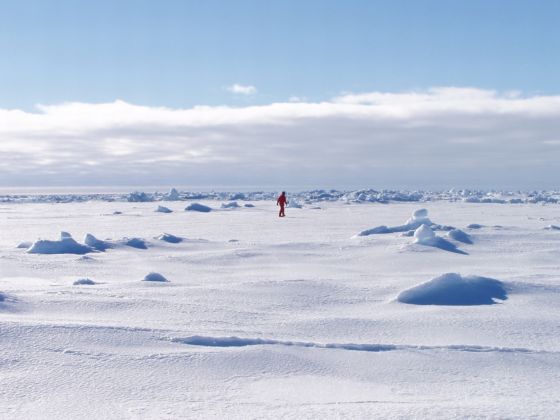After 921 miles across one of the most desolate, unforgiving landscapes in the world, the race across Antarctica finally has a winner. Colin O’Brady, a 33-year-old American, finished the two-month race across the world’s southernmost continent on Wednesday, becoming the first person to ever cross Antarctica from coast to coast solo, unsupported, and unaided by wind. Even more impressive, he completed the feat without taking a single day off. His only break came on November 29 when he lost a ski from his ski and was forced to rest to reglue it.


O’Brady’s phenomenal journey, which began on November 3 and ended just after Christmas, will be remembered in history alongside the expeditions of other legendary polar explorers, like Norway’s Roald Amundsen and England’s Robert Falcon Scott. And like all great polar races, O’Brady wasn’t just competing against himself. Louis Rudd, an Englishman, has been racing O’Brady since the start. Rudd took the lead after the first week, but O’Brady caught upon on November 9 and thereafter maintained a steady advantage of between one and two days. His decisive victory was thanks to an impressive push on Christmas Day when he traveled for 32 hours without sleep. According to The New York Times, when O’Brady woke on Christmas morning, he sensed how close he was to his goal and decided to attempt a final one-day push.
Although O’Brady typically stopped around 8:00 PM, on Christmas Day the clock kept ticking, and O’Brady was still going strong until he finally decided to rest — and check-in via satellite phone — around 1:30 AM. The decision to continue that day was questionable and dangerous though it ultimately paid off. Clearly, he was eager to finish his journey. As he communicated via satellite phone on December 22, “I fell into a crevasse that could have easily killed me. I want to be done badly, but at the same time, It’s about executing all the little things and not make any stupid mistakes at the end.”
While O’Brady’s traverse required an incredible amount of skill and preparation, he should still count himself lucky to have survived. Others weren’t so fortunate. In 2016, Henry Worsley covered 900 miles of the continent but died shortly after being airlifted from the ice.
H/T: The New York Times